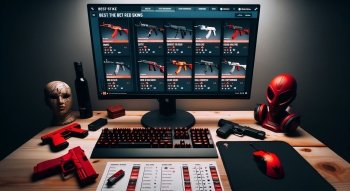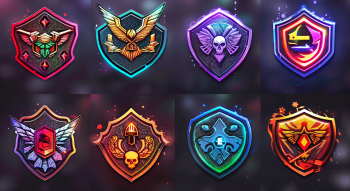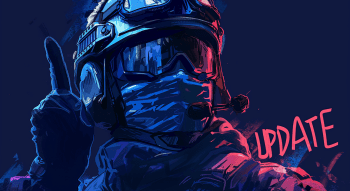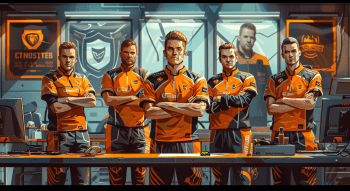The Role of a Coach in CS2: Main Tasks
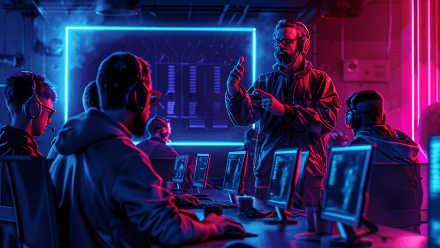
Counter-Strike is not just a shooting game. If it was so, it would be quite an easy thing to master. In-game tactics and money management, player setups and utility usage, team synergy and mentality, and situation analysis — these are the skills that define the modern CS. And while players primarily focus on their mechanics and consistency, someone should do the rest of the job. This role is traditionally referred to as the team’s coach. CS2 coach responsibilities include, but are not limited to, ensuring the team is always tactically, mechanically, mentally, and physically prepared for matches and tournaments. And it is far, far more challenging than it sounds.
Main Tasks of a Coach in CS2
The CS as a system is ever-competitive, and subject to regular changes. Amateur and pro teams form and reform, players come and go, meta swings, maps get reworked, and so on. In this chaos, every team needs someone to keep track of all the new emerging practices and trends. The CS2 coach role involves a tremendous amount of work to keep track of all these things and more. Let’s find out what the role of a coach in Counter-Strike 2 is like and discuss the challenges you’ll face if you choose to become one. To learn more about the real results, you can read about the best CS coaches and what they have achieved in their careers.
Analyzing Current Meta and Coming Up with New Strats
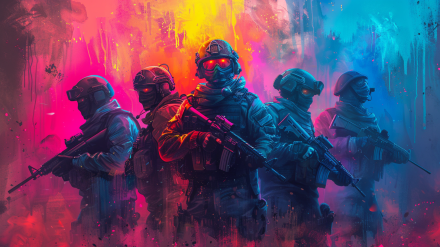
One of the most important CS2 coach tasks is to prepare individual players and the team as a whole for the most recent changes in the game. The team should be ready to surprise their opponents while being impossible to catch off guard. Be it a small change on a certain map or a new setup that another team successfully utilizes, the coach thoroughly reviews the trend and comes up with ways to incorporate it into the team’s playstyle, or finds means to counter it.
Adjusting Tactics
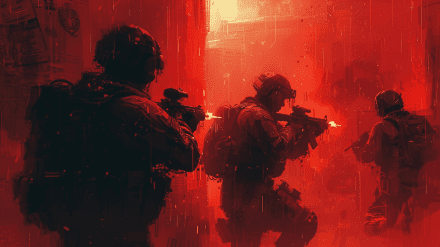
Sometimes, the match is not going according to plan, and the opposing team is simply ruling it. In such scenarios, the CS2 coach’s responsibilities lie in determining the key points of the opposing team’s gameplay and coming up with counter-tactics. Not only does the coach have to find out what tricks the rivals use and how the team can resist it, but they also have to quickly and plainly communicate the new tactics to the team to make adjustments on the go.
Calling Timeouts

Timeouts in CS2 are a multipurpose tool the coaches can utilize any moment, but not more than 2 times in a match. Therefore, calling timeouts at the right moments is one of the key CS2 coach tasks. Trainers typically use them either to adjust the tactics mid-game, or to change the pace. For instance, if the team played slow defaults for several rounds in a row, the coach can decide to surprise the opponents with a different, high-speed execute.
Coaching Players Individually

Another crucial role of a coach in CS2 is to make sure everyone on the team stays at their best. To do this, one must thoroughly analyze the gameplay of a team and approach each player individually to point out their strengths and weaknesses. Whether it's advice on mechanical skills or a suggestion on decision-making or utility usage, coaches must conduct, deliver, and explain the information to ensure the players understand and fix the mistakes impacting the team’s performance.
The coach understands the support role meaning and other roles in the team, and therefore can quickly make the best decision in a given situation.
Conclusion
Coaches are the team’s 6th players. They are unsung heroes who do a hard job ensuring that their charges are always in shape, and despite not actually playing the game, trainers have a big impact on every match’s outcome. What are your thoughts now as you know what are the tasks of a coach in CS2? If you are a huge fan of CS but don't have the necessary aim to play competitively, it might be an interesting role to try someday.
